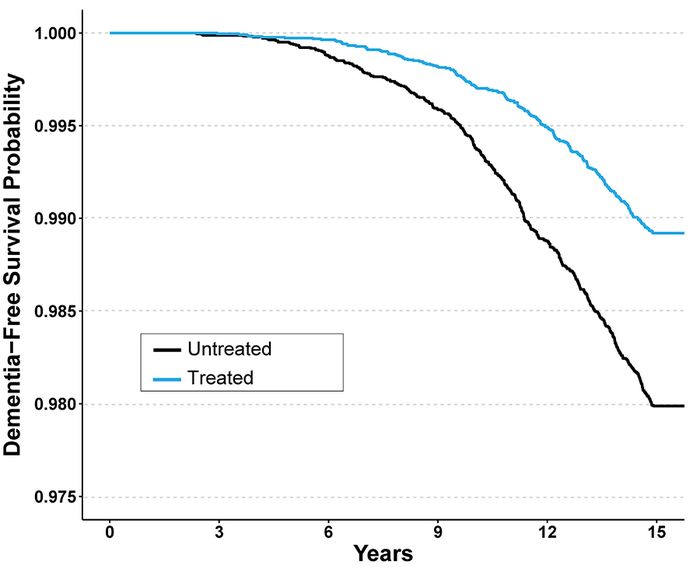Philadelphia, October 17, 2022 – Depression has long been associated with an increased risk of dementia, and now a new study provides evidence that timely treatment of depression could lower the risk of dementia in specific groups of patients.

Credit: Biological Psychiatry
Philadelphia, October 17, 2022 – Depression has long been associated with an increased risk of dementia, and now a new study provides evidence that timely treatment of depression could lower the risk of dementia in specific groups of patients.
Over 55 million people worldwide live with dementia, a disabling neurocognitive condition that mainly affects older adults. No effective treatment for dementia exists but identifying ways to help minimize or prevent dementia would help to lessen the burden of the disease.
The study, led by Jin-Tai Yu, MD, PhD, Huashan Hospital, Shanghai Medical College, Fudan University, and Wei Cheng, PhD, Institute of Science and Technology for Brain-Inspired Intelligence, Fudan University, Shanghai, China, appears in Biological Psychiatry, published by Elsevier.
Professor Yu and Professor Cheng used data collected by the UK Biobank, a population-based cohort of over 500,000 participants. The current study included more than 350,000 participants, including 46,280 participants with depression. During the course of the study, 725 of the depressed patients developed dementia.
Previous studies examining whether depression therapies such as pharmacotherapy and psychotherapy could lower the risk for dementia produced mixed results, leaving the question unresolved. “Older individuals appear to experience different depression patterns over time,” said Professor Yu. “Therefore, intra-individual variability in symptoms might confer different risk of dementia as well as heterogeneity in effectiveness of depression treatment in relation to dementia prevention.”
To address that heterogeneity, the researchers then categorized participants into one of four courses of depression: increasing course, in which mild initial symptoms steadily increase; decreasing course, starting with moderate- or high-severity symptoms but subsequently decreasing; chronically high course of ongoing severe depressive symptoms; and chronically low course, where mild or moderate depressive symptoms are consistently maintained.
As expected, the study found that depression elevated the risk of dementia – by a striking 51% compared to non-depressed participants. However, the degree of risk depended on the course of depression; those with increasing, chronically high, or chronically low course depression were more vulnerable to dementia, whereas those with decreasing course faced no greater risk than participants without depression.
The researchers most wanted to know whether the increased risk for dementia could be lowered by receiving depression treatment. Overall, depressed participants who received treatment had reduced risk of dementia compared to untreated participants by about 30%. When the researchers separated the participants by depression course, they saw that those with increasing and chronically low courses of depression saw lower risk of dementia with treatment, but those with a chronically high course saw no benefit of treatment in terms of dementia risk.
“Once again, the course of ineffectively treated depression carries significant medical risk,” said Biological Psychiatry editor John Krystal, MD. He notes that, “in this case, symptomatic depression increases dementia risk by 51%, whereas treatment was associated with a significant reduction in this risk.”
“This indicates that timely treatment of depression is needed among those with late-life depression,” added Professor Cheng. “Providing depression treatment for those with late-life depression might not only remit affective symptoms but also postpone the onset of dementia.”
“The new findings shed some light on previous work as well,” said Professor Cheng. “The differences of effectiveness across depression courses might explain the discrepancy between previous studies.”
Journal
Biological Psychiatry
DOI
10.1016/j.biopsych.2022.08.026
Method of Research
Observational study
Subject of Research
People
Article Title
Depression, Depression Treatments, and Risk of Incident Dementia: A Prospective Cohort Study of 354,313 Participants




